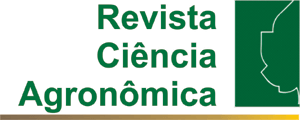ABSTRACT
This study evaluated the biomass flow of irrigated Pennisetum purpureum cv. Cameroon fertilized with different levels of organic compost made from waste derived from production and slaughter of sheep and goat farming. The experiment was conducted in a cut and carry of elephant grass for four 60 day-cycles. The treatments consisted of levels of organic compost (0; 13.3; 26.6; 39.9; 53.2; 79.8) ton ha-1, besides a mineral treatment with nitrogen and potassium of 720 and 900 kg ha-1 yr-1, respectively. This was a split plot randomized block design with repeated measures over time, in which levels were assigned to plots, and cycles, to subplots. Morphogenetic characteristics of elephant grass were influenced by levels of the compost. Forage production rate had increased linearly with levels of the compost in all cycles, while the forage accumulation rate responded quadratically to doses of compost in cycles 1 and 2. The contrast analysis between organic x mineral fertilization revealed, for all cycles, except the first, superiority of morphogenetic indices for mineral fertilizer. It can be concluded that the elephant grass responded to the organic compost and it is recommended the use of 70.63 ton ha-1.
Key words:
C:N ratio; Biomass flow; Leaf elongation rate; Mineralization; Pennisetum purpureum



